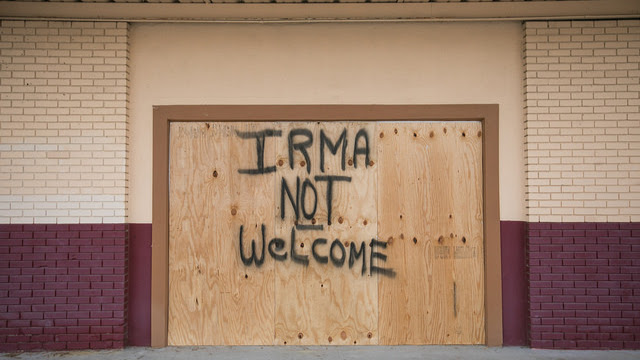 FLICKR, CITYOFSTPETEAs Hurricane Irma continues up Florida’s west coast, those in its wake are just beginning to assess the damage from the past several days. The storm has killed at least 27 people in the Caribbean and four in Florida. Georgia has also been under a state of emergency as the storm approached, and Irma has already killed one person there and knocked out power to 700,000, the Weather Channel reports.
FLICKR, CITYOFSTPETEAs Hurricane Irma continues up Florida’s west coast, those in its wake are just beginning to assess the damage from the past several days. The storm has killed at least 27 people in the Caribbean and four in Florida. Georgia has also been under a state of emergency as the storm approached, and Irma has already killed one person there and knocked out power to 700,000, the Weather Channel reports.
An estimated 6.5 million Floridians were ordered to evacuate ahead of the storm, according to the governor’s office. Those included faculty, staff, and students at numerous universities. Sylvia Daunert, a biochemist at the University of Miami School of Medicine, says in an email to The Scientist that some fled to other states while “others moved out of the country because that is the only flight they could find before the airport closed,” she writes. Daunert and her family headed for the Florida panhandle.
The University of Miami had advised students and personnel not to come to campus, stating that classes will not resume until at least September 18. Delia Gutman, who manages a lab in the medical school, tells The Scientist in an email that ...




















